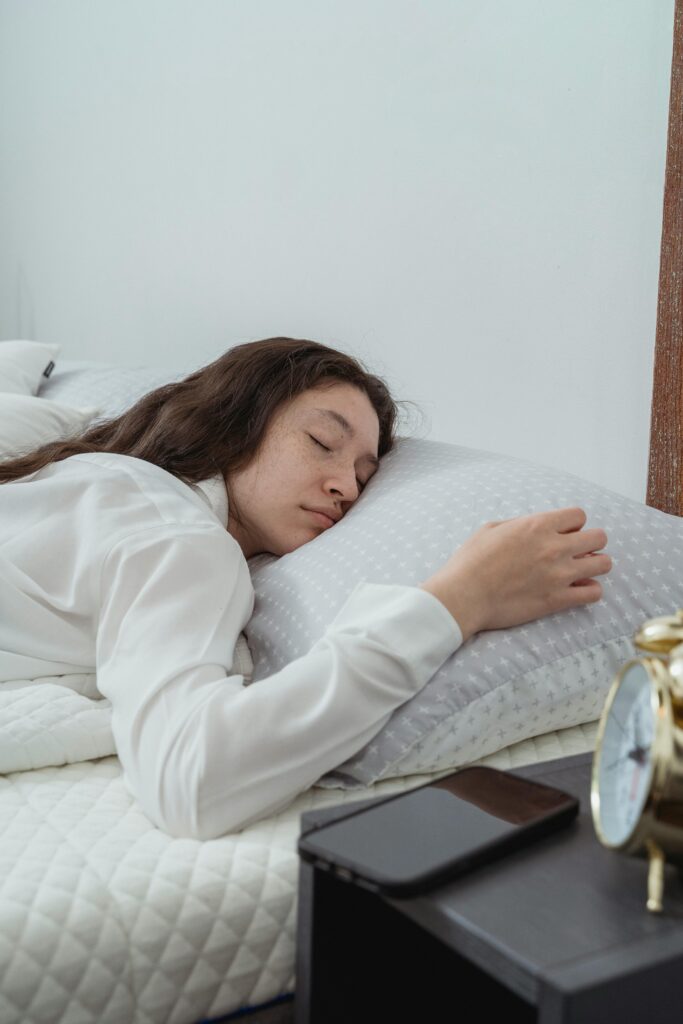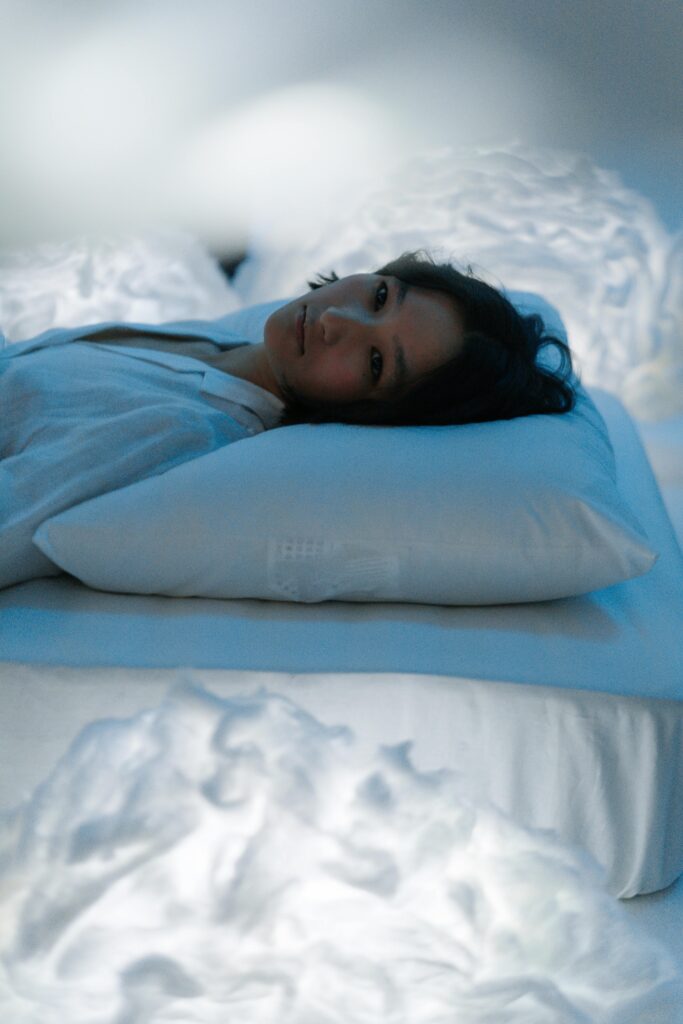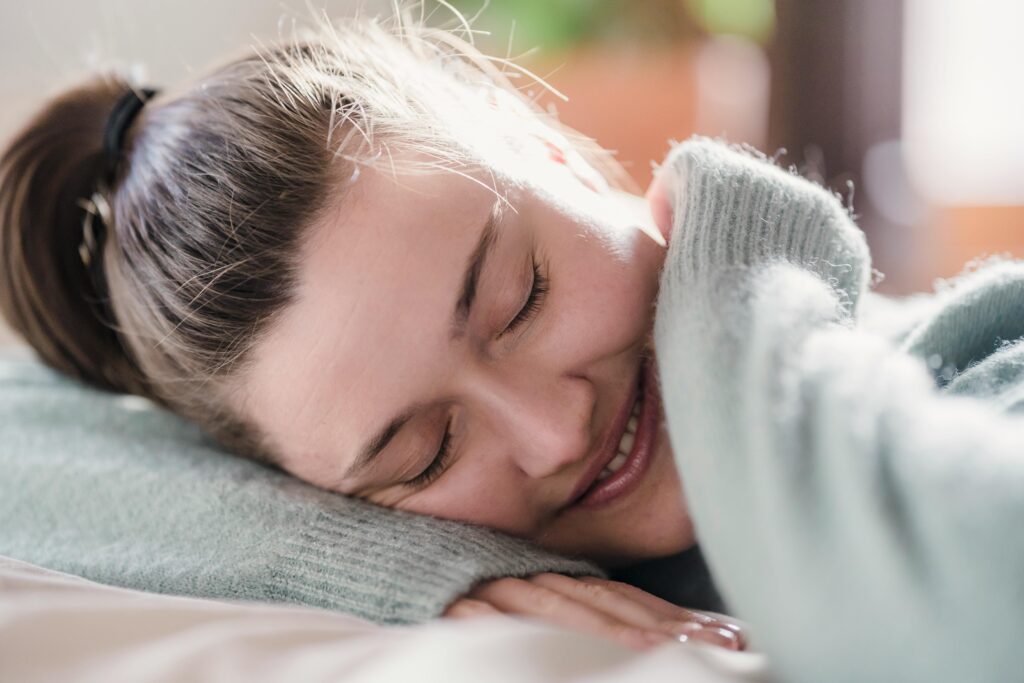Dreams are intricately related to sleep, particularly the various stages of the sleep cycle. Understanding this relationship can provide insights into how and why we dream. Here’s an overview of how dreams are related to sleep.

The Sleep Cycle.
Sleep is divided into several stages, broadly categorized into Non-REM (NREM) and REM (Rapid Eye Movement) sleep. Each stage plays a role in the overall sleep process and is associated with different types of brain activity.
01. NREM Sleep.
- Stage 1: Light sleep, transitioning from wakefulness to sleep. This stage involves slowed breathing and heart rate, and it’s easy to wake up from.
- Stage 2: Slightly deeper sleep. Body temperature drops and heart rate slows further. This stage accounts for the majority of sleep.
- Stage 3: Deep sleep, also known as slow-wave sleep (SWS). It’s harder to wake up from this stage, and it’s crucial for physical restoration and recovery.
02. REM Sleep.
- REM sleep is characterized by rapid eye movements, increased brain activity, and vivid dreaming. The body experiences atonia, a temporary paralysis of most muscle groups, to prevent acting out dreams.

yOU cAN aLSO lIKE tO rEAD tHIS bLOg:- 6 Tips For Better Sleep When You Travel
Relationship Between Dreams and Sleep Stages.
01. Dreams in NREM Sleep.
- Dreams can occur during NREM sleep, particularly in the later stages (stages 2 and 3), but they are generally less vivid and more fragmented compared to REM dreams.
02. Dreams in REM Sleep.
- REM sleep is the stage most closely associated with vivid and intense dreaming. During REM, brain activity resembles that of wakefulness, which contributes to the vividness and emotional intensity of dreams.

yOU cAN aLSO lIKE tO rEAD tHIS bLOg:- How Sharing a Bed with Your Partner
Functions of Dreaming.
01. Emotional Regulation.
- Dreams, especially those occurring during REM sleep, are thought to help process emotions and memories. This can contribute to emotional balance and mental health.
02. Memory Consolidation.
- Dreaming may play a role in consolidating and organizing memories. REM sleep, in particular, is crucial for integrating new information and experiences into long-term memory.
03. Problem-Solving.
- Dreams can sometimes offer creative solutions to problems or help in processing complex thoughts and emotions.
04. Stress Reduction.
- Dreaming may help reduce stress by allowing the brain to work through unresolved issues and anxieties in a safe environment.

Dream Patterns and Sleep Disorders.
01. Lucid Dreaming.
- Lucid dreaming occurs when a person becomes aware they are dreaming and can sometimes control the dream. This typically happens during REM sleep.
02. Nightmares.
- Nightmares are distressing dreams that usually occur during REM sleep. They can be triggered by stress, anxiety, trauma, or certain medications.
03. Sleep Disorders.
- Conditions like sleep apnea, insomnia, and narcolepsy can affect the quality and structure of sleep, thereby influencing dream patterns. For example, people with narcolepsy may enter REM sleep more quickly and experience more vivid dreams or sleep paralysis.

Enhancing Dream Recall and Quality.
01. Healthy Sleep Habits.
- Maintaining a regular sleep schedule, creating a comfortable sleep environment, and managing stress can improve sleep quality and influence dream patterns.
02. Dream Journaling.
- Keeping a dream journal can help improve dream recall and provide insights into recurring themes or issues in your dreams.
03. Mindfulness and Relaxation.
- Practices like meditation and relaxation techniques before bed can promote better sleep quality and potentially lead to more positive dream experiences.
Understanding the relationship between dreams and sleep can enhance your awareness of how different stages of sleep contribute to the richness and variety of your dreams. By fostering healthy sleep habits, you can improve both your sleep quality and your dream experiences.


1 thought on “How Dreams Are Related To Sleep”